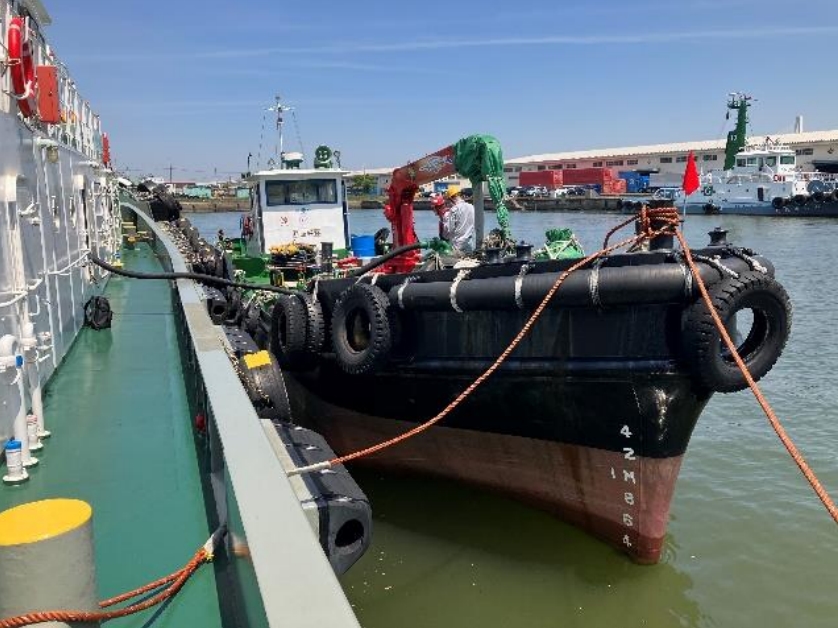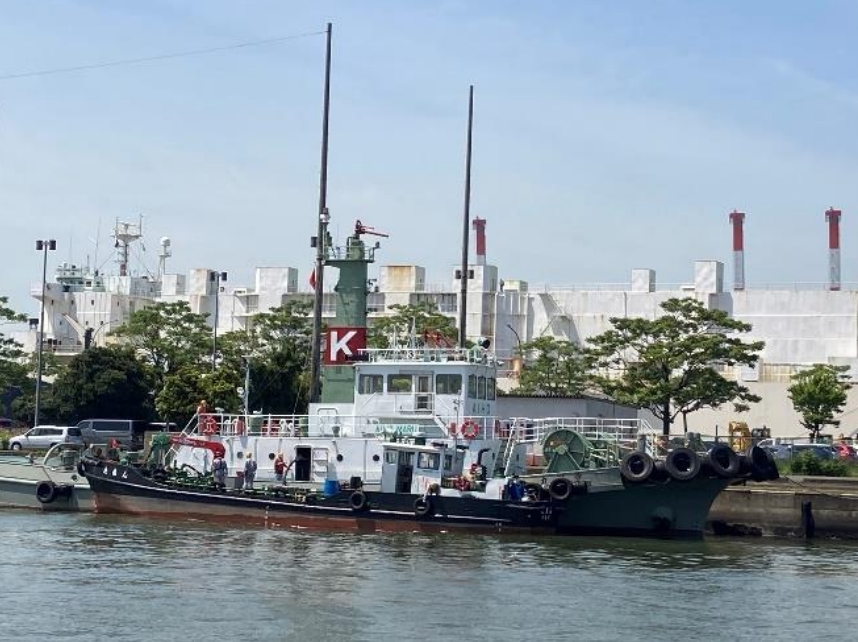“K” Line Port Service Co., Ltd., a group company of Kawasaki Kisen Kaisha., Ltd. (“K” LINE), conducted a demonstrative test voyage with the tugboat “Aihomaru” operating in Nagoya Port using next-generation biodiesel fuel.

Biodiesel fuel is carbon neutral defined in the IPCC guidelines*¹ and a decarbonized fuel that can be used without changing the specifications of existing marine diesel engines by mixed combustion with heavy fuel oil (HFO), which is the main fuel for ships.
This time the biodiesel fuel supplied by Toyotsu Energy Corporation on May 10th (at Nagoya Port) is made from waste cooking oil. This initiative contributes to a circular economy through the construction of a supply chain based on local production for local consumption. In the demonstrative test voyage, the fuel supply vessel (bunkering vessel) supplied marine biofuel to the Aihomaru with using a ship-to-ship method, with the aims of verifying that there is no hindrance to the series of ship operations and reducing CO2 emissions in operation.

The “K” LINE Group’s long-term environmental guidelines—the “K” LINE Environmental Vision 2050- Blue Seas for the Future-*²—set a target of 50% improvement in CO2 emission efficiency in comparison with 2008, which exceeds the 2030 target of 40% improvement in CO2 emission efficiency (also in comparison with 2008) set by the International Maritime Organization (IMO).
“K” LINE also aims to contribute to the enrichment of people’s lives by driving its own decarbonization efforts and supporting the decarbonization of society, declaring the target of attempting to achieve net-zero GHG emissions by 2050. Going forward, the Group will continue working to achieve these targets by introducing alternative fuels that can reduce its environmental impact.
*¹ The Intergovernmental Panel on Climate Change (IPCC) Biodiesel fuel is made from plants which absorb CO2 in the process of growing so it is regarded as carbon neutral in its life cycle,
*² “K” LINE Environmental Vision 2050-Blue Seas for the FutureAs part of our action plan to reduce GHG, we are engaged in number of initiatives, for instance introducing zero-emission fuels such as ammonia and hydrogen fuels, and carbon-neutral fuels such as bio-LNG and synthetic fuels.